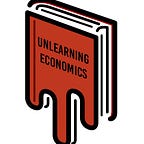Nobody Believes Friedman (1953)
Inspired by Beatrice Cherrier’s typically informative tweetstorm about Milton Friedman’s famous 1953 essay The Methodology of Positive Economics, I’d like explain my response that nobody believes in the essay. In short, the methodology it espouses is absurd, which is why Friedman didn’t really believe it and economists don’t either. The sole purpose it serves is as a dog whistle for ‘only neoclassical economics is economics’. Unfortunately this means that it retains a rhetorical purpose even though contemporary economists do not subscribe to it 100%. As twitterer Stefan Martinez-Ruiz cleverly put it, economists act as if Friedman’s essay is true, and certainly when they are responding to critics.
Friedman argued that the assumptions of a theory don’t matter; only its predictions. Unrealistic theories have scientific value as long as they are empirically accurate. So far, so good. But Friedman took it a step further when he said “the more significant the theory, the more unrealistic the assumptions”. This is false: advances in scientific accuracy are often made through more realistic assumptions. Bad assumptions are a necessary evil rather than an end goal, something pointed out by economists such as Paul Samuelson in response to Friedman’s essay and highlighted by later economists such as Dani Rodrik (see Beatrice’s tweetstorm). Friedman takes the fact that theory can’t be 100% accurate in its assumptions to imply that it can be 0% accurate, kind of like when meat eaters say that because you aren’t 100% vegan it’s okay for them to eat all the meat they like.
But what is Friedman’s suggested way to determine whether or not a theory is scientifically valid? In abstract, he argues we should test its predictions. He refers to the fact that businesses don’t behave according to marginalism as a “largely irrelevant question” when compared to the implications of the theory of the firm. But he doesn’t specify what the implications of the theory are so that they can be falsified. He doesn’t seem to understand that businesses behaving according to marginalism is an implication of the theory of the firm, something pointed out by Don Patinkin at the time. There is no way to test this implication other than by asking businesses whether or not they do it.
Because he disputed you could test the theory one way while neglecting to point out how it might be tested another way, Friedman’s essay is anti-empirical. The theory became immune to falsification. And the funniest thing is that in the same collection of essays Friedman criticised Oscar Lange for doing something similar:
His categories are selected primarily to facilitate logical analysis, not empirical application or test. For the most part, the crucial question, “What observed facts would contradict the generalization suggested, and what operations could be followed to observe such critical facts?” is never asked; and the theory is so set up that it could seldom be answered if it were asked. The theory provides formal models of imaginary worlds, not generalizations about the real world.
It’s difficult for me to understand why a completely counterfactual model of how firms price does not qualify as an imaginary world when Lange’s work (which actually used very similar mathematics) does. That is unless you realise that nobody, even Friedman, can follow Friedman’s methodology fully because it leads to absurdities. Friedman’s critique of Lange is actually sensible but it contradicts his defence of marginalism, which is not.
We see this time and time again in contemporary economic debates. Economists defer to ‘all models make assumptions’ when you criticise the realism of their models. However, if you show mainstream economists a non-neoclassical theory — even one with predictive power — they will start to question its assumptions. There are ways of hiding that this is what they are doing: both the Lucas Critique and the charge of ad hoc roughly translate as ‘you don’t use microfoundations’ i.e. ‘you use the wrong assumptions’. Another, more subtle example is the idea neoclassical assumptions about preferences are deeper or more real than alternatives.
Like everyone else, economists consider certain sets of assumptions beyond the pale. This is fine as it goes, but we should stop pretending they buy into the mantra of ‘assumptions don’t matter’ because nobody does. To claim assumptions are irrelevant is to elide interest in the thing that you are studying .Everyone is entitled to question assumptions they do not believe represent reality; equally, if a theory has strong predictive power then these questions can be considered of secondary importance unless they lead to a superior theory. But an essay which appeals to predictive power without specifying predictions, by an author who defends unrealistic assumptions before questioning the assumptions of his opponents, should not be the basis for the methodology of any discipline.
